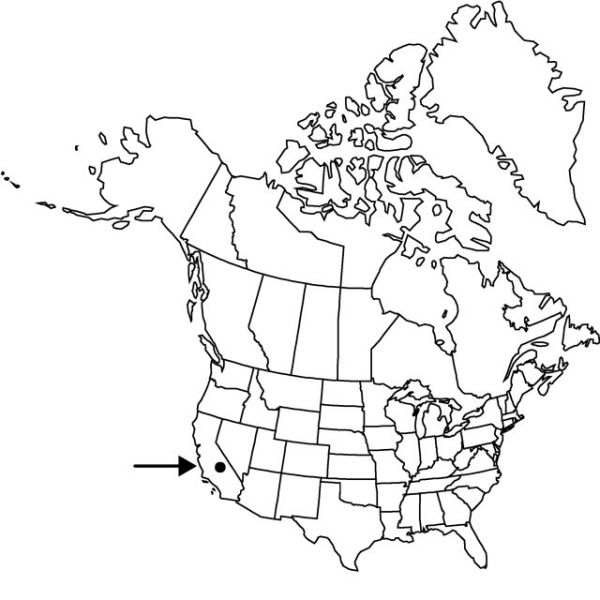Difference between revisions of "Brodiaea insignis"
Univ. Calif. Publ. Bot. 60: 52. 1971.
FNA>Volume Importer |
FNA>Volume Importer |
||
| Line 28: | Line 28: | ||
|distribution=Calif. | |distribution=Calif. | ||
|discussion=<p>Of conservation concern.</p><!-- | |discussion=<p>Of conservation concern.</p><!-- | ||
| − | --><p>Brodiaea insignis is endangered. It is endemic to three localities along the Kaweah and Tule river drainages and is threatened by development, road maintenance, and grazing. It is in cultivation.</p> | + | --><p><i>Brodiaea insignis</i> is endangered. It is endemic to three localities along the Kaweah and Tule river drainages and is threatened by development, road maintenance, and grazing. It is in cultivation.</p> |
|tables= | |tables= | ||
|references= | |references= | ||
| Line 52: | Line 52: | ||
|publication year=1971 | |publication year=1971 | ||
|special status= | |special status= | ||
| − | |source xml=https://jpend@bitbucket.org/aafc-mbb/fna-data-curation.git/src/ | + | |source xml=https://jpend@bitbucket.org/aafc-mbb/fna-data-curation.git/src/8f726806613d60c220dc4493de13607dd3150896/coarse_grained_fna_xml/V26/V26_653.xml |
|genus=Brodiaea | |genus=Brodiaea | ||
|species=Brodiaea insignis | |species=Brodiaea insignis | ||
Revision as of 16:46, 18 September 2019
Scape 7–24 cm, slender. Flowers 14–24 mm; perianth rose to pinkish purple, rotate, tube narrowly cylindrical, not constricted above ovary, 6–9 mm, opaque, not splitting in fruit, lobes widely spreading, 11–15 mm; filaments linear, 1–2 mm, base dilated to form triangular flap, appendages absent or narrow and inconspicuous; anthers linear, 2–4 mm, apex hooked; staminodia erect, held close to stamens, white, broad, 6–8 mm, margins 3/4 involute, apex 2-lobed; ovary 4–5 mm; style 4–5 mm; pedicel 2–9 cm. 2n = 32.
Phenology: Flowering spring (May–Jun).
Habitat: Foothill woodland openings
Elevation: 200–500 m
Discussion
Of conservation concern.
Brodiaea insignis is endangered. It is endemic to three localities along the Kaweah and Tule river drainages and is threatened by development, road maintenance, and grazing. It is in cultivation.
Selected References
None.
